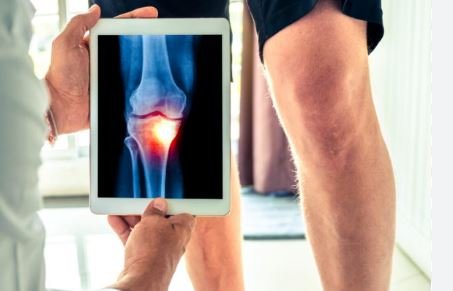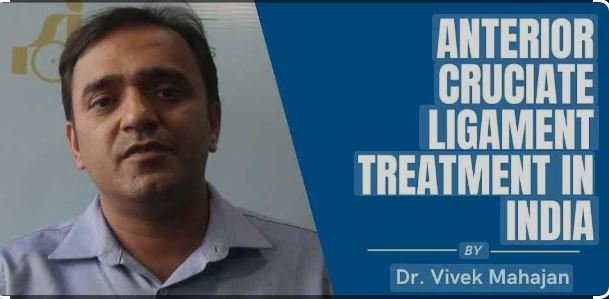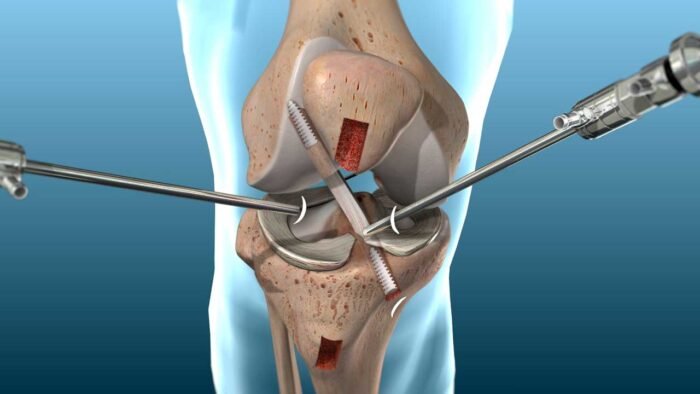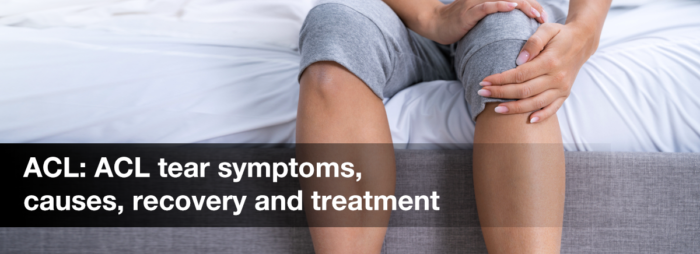Overview of ACL surgery
ACL (Anterior Cruciate Ligament) surgery is a common procedure to repair or reconstruct a damaged ACL, the main knee ligament. If you are considering ACL surgery, knowing what to expect before, during, and after surgery can help prepare you for your best recovery. Renowned orthopedic surgeon Dr. Vivek Mahajan explains this important procedure.
Preoperative Preparation and Counselling
It is important to discuss it carefully with your orthopedic surgeon before undergoing ACL surgery. Dr. Vivek Mahajan will assess your condition through physical exams and imaging tests such as MRIs or X-rays. This assessment helps determine the extent of your injury and the most appropriate surgical procedure.
Preoperative Preparation
- Medical History Check: Provide detailed information about your medical history, including any prior conditions or medications or medications you may be taking.
- Preoperative testing: You may need to undergo preoperative testing, including blood work and possibly a heart exam, to make sure you are fit for surgery.
- Drugs and lifestyle change: Follow the lead of the great man. This may include stopping certain medications and adopting a healthy diet for healing.
- Preoperative instructions: Physician. The Mahajan will give specific instructions on how to prepare for the day of surgery, such as fasting and travel plans.

Detailed breakdown of the operation the ACL Surgery procedure
ACL surgery is usually performed using arthroscopic techniques, which involve making small incisions around the knee and repairing or reconstructing the tendon with specialized cameras and instruments
- Anesthesia: You will be given general anesthesia, which can be general or regional, to ensure that you are comfortable and pain-free during the procedure.
- Neurological examination: Physician. The big guy uses an arthroscope (a thin tube with a camera) through small incisions to look inside your knee.
- Reconstruction: If reconstruction is necessary, the damaged ACL will be replaced with a graft (usually taken from your own tissue or a donor). The graft will be secured with screws or other implant devices.
- Postoperative care: Your knee will be bandaged after surgery, and you can be given specific instructions for managing pain and inflammation.
Postoperative recovery
Rehabilitation, and Time Management Immediate Postoperative Care
- Pain and Inflammation Management: Physician. Follow Mahajan’s instructions, which include packed ice, elevation, and prescribed medication
- Mobility: The use of a cane will be necessary initially to avoid putting weight on the knees. Physical therapy begins shortly after surgery to help restore motivation.
Conclusion
ACL surgery is an important step in restoring knee function and returning to an
active lifestyle. With proper care by Dr. Vivek Mahajan, thorough pre-surgery
preparation, and a structured rehabilitation program, you can go well into your
recovery. Commit to your recovery plan, and after time and effort, you will
return to your normal activities stronger than ever.



